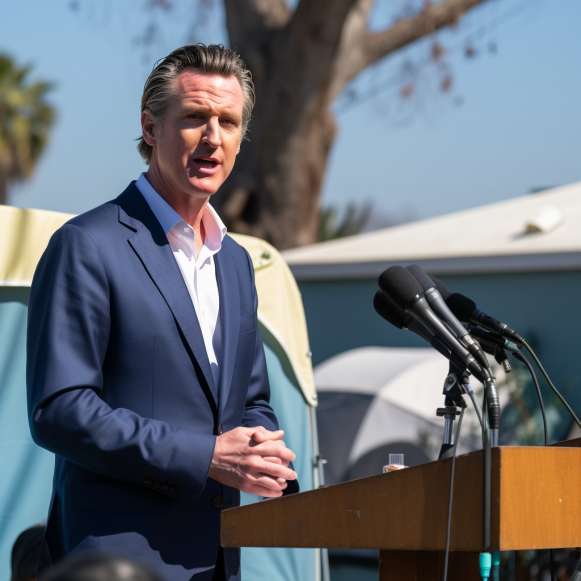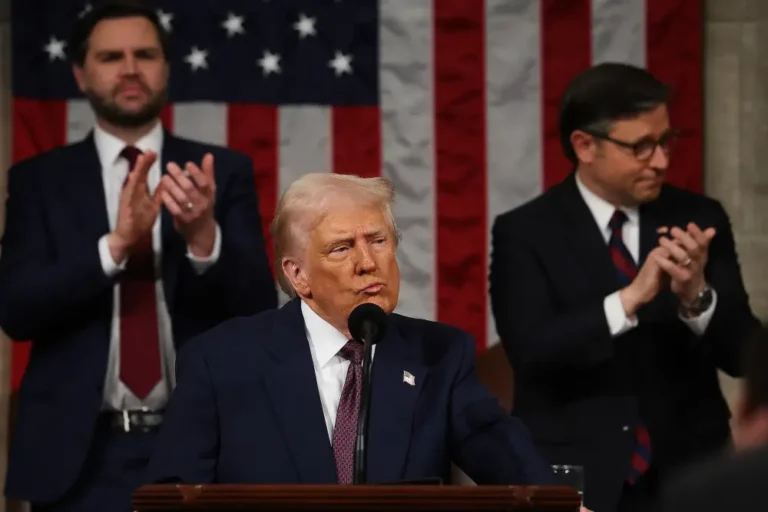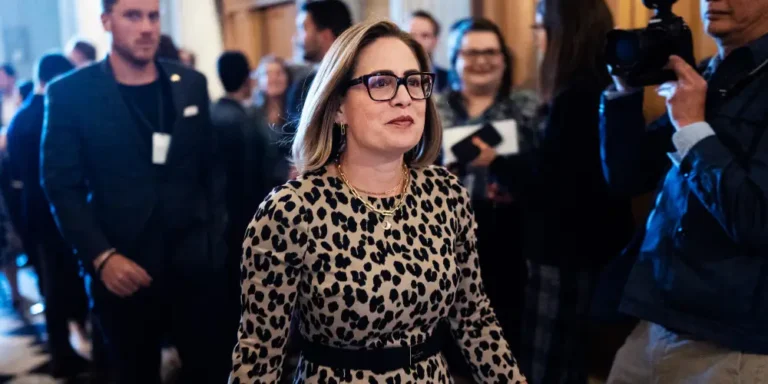What did Newsom sign — and veto — this legislative season?

This year, Gov. Gavin Newsom signed 890 bills into law.
A task force dedicated to fentanyl overdose prevention will soon be established in California. School districts will need to consider body shaming and develop policies to prevent it. In addition, community colleges in Mexico will be required to provide in-state tuition to some students, including low-income students who live less than 45 miles from the California border.
Those were among the 100 new laws signed into law by Gov. Gavin Newsom on Friday, completing the final of 1,046 bills sent to his desk by the legislature dominated by his fellow Democrats.
Newsom vetoed just two bills on his final day of bill signings on Friday — the deadline was midnight Saturday — for a total of 890 signed and 156 vetoed in 2023. This represents a slight increase in his rejection of proposed legislation, reflecting both his concerns about the state’s finances in an uncertain economy and his national political ambitions.
“Newsom has been put in the position of serving as the legislature’s adult supervision,” Dan Schnur, a political analyst and professor at the University of California-Berkeley, the University of Southern California, and Pepperdine University, said. “He indulges their instincts when he can, but there are certain points, particularly on fiscal and public safety matters, where he has to rein them in.”
Among the bills he vetoed on Friday, AB 616, which would have required transparency into health-care provider finances, was deemed “premature.” SB 509 would have required behavioral health training for school staff, which Newsom believes should have been considered in the context of the state budget.
However, this year, Newsom has made progress on a number of other contentious issues, including education, gun safety, and housing.
Legislation that will affect California’s public school students includes, among other things, bills that will increase support for LGBTQ+ students, prohibit book bans, and require schools to have one gender-neutral restroom on each campus. On Friday, Newsom introduced AB 446, which requires schools to teach cursive handwriting, AB 873, which requires media literacy instruction so that students can spot misinformation from questionable online sources, and SB 765, which makes it easier for retired teachers to return to the classroom.
In terms of gun safety, Newsom paved the way for an 11% tax on guns and ammunition, tougher concealed carry laws, and an improved process for removing firearms from people who aren’t allowed to own them. In terms of housing, Newsom signed bills to strengthen renters’ rights and encourage more housing development, among other measures.
Newsom also introduced a number of environmental bills, including one mandating that new buildings in California be more water efficient and another directing the legislature to allocate $6 million toward the monitoring and research of offshore wind projects.
With a federal fraud trial over the collapse of cryptocurrency giant FTX underway, Newsom signed a pair of bills, AB 39 and SB 401, to provide some oversight. He even wrote a signing message for AB 39 in which he stated that “stronger consumer and investor protections will prevent fraud and ensure bad actors are held accountable.”
According to Larry Gerston, emeritus professor of political science at San Jose State University, the bills Newsom signed were mostly consistent with his progressive politics.
“People will pick it all apart and say, well, he did this, or he did that,” he said. “However, I don’t see any significant movement either way.” He was Newsom. He’s stayed to the left.”
According to a Senate research office survey, Newsom’s veto rates — 15% in 2023, 14% in 2022, 8% in 2021, and 13% in 2020 — have been roughly in line with those of his Democratic predecessor, Jerry Brown, and lower than those of Republican Arnold Schwarzenegger.
Nonetheless, many of Newsom’s vetoes were cost-related, and Newsom repeatedly mentioned the state’s ongoing budget crisis in a number of veto messages. California is dealing with a $30 billion budget shortfall this year. According to Newsom’s repeated veto messages, the Legislature sent him a slew of bills that, if fully enacted, would have cost the state an additional $19 billion.
“With our state facing continuing economic risk and revenue uncertainty, it is important to remain disciplined when considering bills with significant fiscal implications,” Newsom wrote in a veto message for a bill that would have provided free condoms to teenagers in California’s public schools.
While the legislature can override a governor’s veto, doing so is extremely difficult. Because such a change requires a two-thirds vote in both houses, it hasn’t happened in more than four decades.
Nonetheless, there were some notable vetoes during this legislative session of bills that, if passed, would have given Newsom headaches in the heartland during a future presidential run, such as bills to legalize psychedelic drugs and Amsterdam-style “cannabis cafes.”
Even with financial constraints, Newsom appears to have stayed true to the topics he’s become known for, demonstrating the center-left stance that experts say Newsom hasn’t wavered from for years. He’s given the labor movement some victories, including Friday’s SB 525, which establishes a $25 minimum wage for health care workers, but not all of them, according to Gerston. He has been a staunch supporter of abortion rights. And he has kept California’s status as an immigrant sanctuary state.
“He remains front and center on all of those things, and depending upon one’s own evaluation of him, he’s at the top of his class or doesn’t belong in his class,” he said. “That’s just a judgment call that people will make.”






